2073 Icarisian Presidential election
| ||||||||||||||||||||
- | ||||||||||||||||||||
|---|---|---|---|---|---|---|---|---|---|---|---|---|---|---|---|---|---|---|---|---|
| Turnout | 83% (136,115,228 votes) | |||||||||||||||||||
| ||||||||||||||||||||
| ||||||||||||||||||||
The 2073 Icarisian Presidential election was the _th presidential election, held on July 1, 2073. The presidential candidates from each party both had an extensive resume. The Traditionalist ticket of most previously, former Prime Minister Dietrich Weber and former State Delegate from Eskimone Mike Tucker defeated the Libertist ticket of former State Minister of Eskimone Lucinda Kielska and VP. Dietrich Weber took office as the 11th President of the Theocratic States of Icaris and Mike Tucker as the _th Vice President of the Theocratic States of Icaris on September 1, 2073.
Primaries
Traditionalist Party
Candidates
Each candidate has to file official paperwork with the Chairman of their party. Candidates were open to file their paperwork on January 2nd, 2073. Two primary debates were held on February 22 and March 22. The primary election was held on March 31, 2073.
| Candidate | Experience | Campaign launch and suspense date |
|---|---|---|
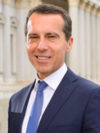 Dietrich Weber |
Prime Minister State Delegate from Eskimone |
January 2, 2073 |
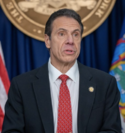 Tod McCarthy |
State Delegate from Avalon | January 3, 2073 |
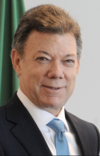 Diego Hidalgo |
Minister of Judicial Oversight State Delegate from Laporinza State Minister from Laporinza |
January 3, 2073 |
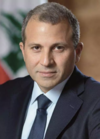 Yuri Nicholson |
State Delegate from Diztana | January 5, 2073 - February 28, 2073 |
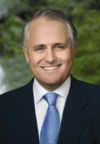 Jackson Willougby |
Icarisian Air Force officer Director of the OVA State Delegate from Grandoix |
January 2, 2073 - March 26, 2073 |
Dietrich Weber's platform was grounded in ridding of government corruption, including influences from special interests such as large corporations and even labor unions that abused their government support. He was by-far the strongest on holding government accountable and investigating government corruption. Weber campaigned on breaking up some of the monopolies as well as breaking up some of the labor union conglomerate and giving smaller unions a seat at the governmental negotiating table. On environmental regulations, Weber was fairly moderate in his stance and argued to restore some of the regulations removed by the previous administration. Weber was a strong supporter of low government spending. He argued for miniscule budgets for both the Ministry of Defense and the Ministry of International Relations. Weber supported the opt-in policy and keeping taxes low and limited in scope. Dietrich Weber is not a member of the Nanti-faith, which did not resinate well with many Icarisians. Weber was seen as the front runner for most of the primary because of his time as Prime Minister.
Tod McCarthy' was also an anti-corruption candidate and found his biggest polling rival in Weber. The two agreed on corruption mitigation, but McCarthy did not believe the labor unions were as much to blame. A strong supporter of the unions, McCarthy believed in giving more autonomy in hopes of protecting their workers. While he was not as experienced as some of his opponents, he brought strong performances in the debates. McCarthy came in second place to Dietrich Weber in the nomination polls. McCarthy was seen as more open and candid than his main rivals Hidalgo and Weber, and was known for being personable with voters.
Diego Hidalgo' as the former Minister of Judicial Oversight sparred well with the candidates that were running on an anti-corruption camapaign. Hidalgo ran on national defense in all aspects, including government corruption, but extending to strong defense spending, tight immigration laws and protectionist trade policies. He wanted strong funding for Defense and IR. His staple of defense was rivaled by Jackson Willoughby, who also focused on these issues. Hidalgo finished third in the elction, closely behind McCarthy.
Yuri Nicholson ran on ....
Jackson Willoughy' ran on serving veterans and a strong national defense. After polling lower than his main ideological pair, he dropped out after the second debate on March 26th and endorsed Diego Hidalgo.
First Poll
January 30, 2073
| Organization | Hidalgo | McCarthy | Nicholson | Weber | Willoughby |
|---|---|---|---|---|---|
| Icarisian Media Group | 11.9% | 19.8% | 12.6% | 33.4% | 22.3% |
| Vermeer Data Science | 12.1% | 21.6% | 12.2% | 32.2% | 21.9% |
| Paletaph State College | 11.8% | 22.3% | 11.9% | 32.6% | 21.4% |
| Walbrook Institute | 11.3% | 19.5% | 12.5% | 31.9% | 24.8% |
| Coalition for an Independent Nation | 11.1% | 18.9% | 12.6% | 30.6% | 26.8% |
| Average | 11.64% | 20.42% | 12.36% | 32.14% | 22.44% |
Second Poll
February 13, 2073
| Organization | Hidalgo | McCarthy | Nicholson | Weber | Willoughby |
|---|---|---|---|---|---|
| Icarisian Media Group | 14.9% | 21.6% | 15.4% | 27.8% | 20.3% |
| Vermeer Data Science | 13.9% | 22.1% | 14.6% | 28.2% | 21.2% |
| Paletaph State College | 13.9% | 21.9% | 16.3% | 26.5% | 21.4% |
| Walbrook Institute | 16.9% | 19.3% | 17.3% | 27.1% | 19.4% |
| Coalition for an Independent Nation | 13.9% | 19.9% | 18.1% | 28.9% | 19.2% |
| Average | 14.7% | 20.96% | 16.34% | 27.7% | 20.3% |
First Debate
Third Poll
February 27, 2073
| Organization | Hidalgo | McCarthy | Nicholson | Weber | Willoughby |
|---|---|---|---|---|---|
| Icarisian Media Group | 24.1% | 23.1% | 12.2% | 27.5% | 13.1% |
| Vermeer Data Science | 24.5% | 25.9% | 12.9% | 25.3% | 11.4% |
| Paletaph State College | 25.2% | 25.5% | 13.1% | 26.8% | 9.4% |
| Walbrook Institute | 23.6% | 24.4% | 11.3% | 26.4% | 14.3% |
| Coalition for an Independent Nation | 23.1% | 24.1% | 10.1% | 28.5% | 14.2% |
| Average | 24.1% | 24.6% | 11.92% | 26.9% | 12.48% |
Fourth Poll
March 13, 2073
| Organization | Hidalgo | McCarthy | Nicholson | Weber | Willoughby |
|---|---|---|---|---|---|
| Icarisian Media Group | 24.1% | 29.8% | N/A | 29.5% | 16.6% |
| Vermeer Data Science | 23% | 29.7% | N/A | 29.6% | 17.7% |
| Paletaph State College | 23.3% | 29.2% | N/A | 29.4% | 18.1% |
| Walbrook Institute | 21.4% | 31.2% | N/A | 31.5% | 15.9% |
| Coalition for an Independent Nation | 25.6% | 29.1% | N/A | 27.5% | 17.8% |
| Average | 23.48% | 29.8% | N/A | 29.5% | 17.22% |
Second Debate
Fifth Poll
March 27, 2073
| Organization | Hidalgo | McCarthy | Nicholson | Weber | Willoughby |
|---|---|---|---|---|---|
| Icarisian Media Group | 30.4% | 37.5% | N/A | 32.1% | N/A |
| Vermeer Data Science | 33.3% | 36.4% | N/A | 30.3% | N/A |
| Paletaph State College | 34.6% | 36.7% | N/A | 28.7% | N/A |
| Walbrook Institute | 29.1% | 34.4% | N/A | 36.5% | N/A |
| Coalition for an Independent Nation | 23.7% | 37.2% | N/A | 39.1% | N/A |
| Average | 30.22 | 36.44% | N/A | 33.34% | N/A |
Primary Election Results
The total vote turnout was approximately 43% of the Icarisian population with 94,023,370 votes.
| Icarisian Election Commission | Hidalgo | McCarthy | Weber |
|---|---|---|---|
| Votes | 27,548,847 | 30,275,525 | 36,198,998 |
| Percentage | 29.3% | 32.2% | 38.5% |
Libertist Party
Candidates
Each candidate has to file official paperwork with the Chairman of their party. The earliest a candidate can apply is January 1st of the election year and the latest is March 24. Two debates were held, one on February 25 and one on March 25. The party will hold the primary election on March 31 and the winner of the nomination is announced on April 1st.
| Candidate | Experience | Campaign launch and/or suspense date |
|---|---|---|
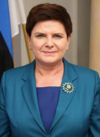 Lucinda Kielska |
Missionary/nonprofit worker State Delegate from Eskimone Minister of International Relations Chairman of the Libertist Party State Minister from Eskimone |
January 1, 2073 |
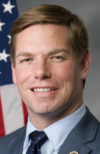 Glenn Reeves |
State Delegate from Paletaph | January 1, 2073 - February 26, 2073 |
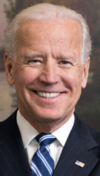 Patrick Gilligan |
Chairman of the Libertist Party State Delegate from Grandoix |
January 1, 2073 |
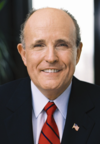 Walter Boudreau |
Mayor of Strafford, Grandoix Chairman of the Libertist Party State Delegate from Grandoix |
January 1, 2073 - March 20, 2073 |
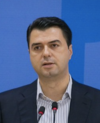 Leo Mahmeti |
Mayor of Othinia, Grandoix State Minister from Grandoix |
January 1, 2073 |
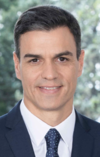 Marco Herrera |
Director of the RAMP State Minister from Laporinza |
January 1, 2073 |
Glenn Reeves's campaign focused on easing the path to citizenship for immigrants, rooting out the hatefulness of the outdated theocracy, reserving rights for women, access to quality, government-sponsored education, and embracing allies, especially the ones to the east.
Lucinda Kielska's campaign was a powerhouse from the beginning because of her leadership in the Libertist party. She ran on solidifying a voice for liberty amongst corruption. Not overcorrecting and stripping away the rights of citizens. She believed in pushing for private options for healthcare, freedom from unneeded business regulation. She embraced the corruption scandal that was plaguing the country and believed it was a time for self-reflection, but not self-destruction. She claimed the country needed a strong leader, not a caretaker president with no policies or values. The next president couldn't just root out corruption, they needed to replace the corruption with solid policy and a solid direction for the country.
Walter Boudreau: His campaign centered around his belief that one of the reasons the nation was in the mess was because the government and corporate interests were far too aligned. He claimed: "Down with the so-called 'social market economy' that spells for disaster! The social market economy is a fancy term for 'corporate interests in bed with the bureaucrats!' I’m sick and tired but this 'Traditional' value-set that has been governing this country for too long! The 'Traditional values' of this country should not mean restricting businesses so much that the only way to succeed is by sucking off the government’s teat!"
Leo Mahmeti's campaign was the most structured. He believed in security and stability an restoring the trust in government. His campaign points: Pro-Business Environment and Streamlined Regulations: Foster a business-friendly environment by reducing unnecessary bureaucracy and streamlining regulations, encouraging entrepreneurship and investment. However, regulations should still be in place to protect consumers and prevent unethical business practices.
Responsible Government Procurement: Establish transparent and accountable government procurement practices to prevent corruption and ensure that public funds are used efficiently. Implement fair and competitive bidding processes while promoting the involvement of reputable and ethical businesses.
Civic Engagement and Public Participation: Foster a culture of civic engagement and public participation by encouraging citizens to actively contribute to decision-making processes. Establish platforms for public input, increase transparency in governance, and promote dialogue between citizens and government officials to ensure inclusive policymaking and accountability.
Robust National Security and Intelligence: Strengthen national security by investing in modernized security infrastructure, intelligence gathering capabilities, and effective defense systems. Ensure a balance between protecting citizens' rights and privacy while implementing domestic surveillance measures to preempt security threats.
Marco Herrera's:
First Poll
January 30, 2073
| Organization | Boudreau | Gilligan | Herrera | Kielska | Mahmeti | Reeves |
|---|---|---|---|---|---|---|
| Icarisian Broadcasting Corporation | 14.7% | 16.2% | 12.3% | 25.3% | 23.1% | 8.4% |
| Vermeer Data Science | 16.8% | 19.9% | 11.1% | 24.5% | 23.5% | 54.2% |
| Paletaph State College | 13.2% | 17.7% | 10.5% | 24.2% | 23.8% | 10.6% |
| Walbrook Institute | 14.2% | 16.2% | 14.2% | 25.1% | 22.2% | 8.1% |
| Coalition for an Independent Nation | 13.1% | 18.5% | 14.9% | 24.9% | 22.9% | 5.7% |
| Average | 14.4% | 17.7% | 12.6% | 24.8% | 23.1% | 7.4% |
Second Poll
February 13, 2073
| Organization | Boudreau | Gilligan | Herrera | Kielska | Mahmeti | Reeves |
|---|---|---|---|---|---|---|
| Icarisian Broadcasting Corporation | 12.2% | 13.6% | 24.5% | 27.6% | 19.6% | 2.5% |
| Vermeer Data Science | 11.8% | 13.4% | 24.7% | 25.5% | 19.2% | 5.4% |
| Paletaph State College | 13.1% | 15.5% | 24.5% | 24.8% | 20.3% | 1.8% |
| Walbrook Institute | 10.9% | 14.3% | 23.9% | 27.9% | 21.2% | 1.8% |
| Coalition for an Independent Nation | 12.4% | 14.7% | 26.4% | 26.2% | 17.2% | 3.1% |
| Average | 12.08% | 14.3% | 24.8% | 26.4% | 19.5% | 2.92% |
First Debate
Third Poll
February 27, 2073
| Organization | Boudreau | Gilligan | Herrera | Kielska | Mahmeti | Reeves |
|---|---|---|---|---|---|---|
| Icarisian Broadcasting Corporation | 11.9% | 14.7% | 27.3% | 27.9% | 18.2% | N/A |
| Vermeer Data Science | 12.4% | 15.3% | 26.8% | 26.6% | 18.9% | N/A |
| Paletaph State College | 12.2% | 14.1% | 26.1% | 29.1% | 18.5% | N/A |
| Walbrook Institute | 12.6% | 14.2% | 27.1% | 27.3% | 18.8% | N/A |
| Coalition for an Independent Nation | 12.4% | 12.2% | 26.7% | 29.6% | 19.1% | N/A |
| Average | 12.3% | 14.1% | 26.8% | 28.1% | 18.7% | N/A |
Fourth Poll
March 13, 2073
| Organization | Boudreau | Gilligan | Herrera | Kielska | Mahmeti | Reeves |
|---|---|---|---|---|---|---|
| Icarisian Broadcasting Corporation | 1.1% | 8.6% | 34.4% | 38.4% | 17.5% | N/A |
| Vermeer Data Science | 1.5% | 9.1% | 33.6% | 38.7% | 17.1% | N/A |
| Paletaph State College | 3.3% | 9.3% | 33.8% | 35.4% | 18.2% | N/A |
| Walbrook Institute | 5.2% | 9.4% | 30.5% | 37.1% | 17.8% | N/A |
| Coalition for an Independent Nation | 1.4% | 9.6% | 34.2% | 35.9% | 18.9% | N/A |
| Average | 2.5% | 9.2% | 33.3% | 37.1% | 17.9% | N/A |
Second Debate
Fifth Poll
March 27, 2073
| Organization | Boudreau | Gilligan | Herrera | Kielska | Mahmeti | Reeves |
|---|---|---|---|---|---|---|
| Icarisian Broadcasting Corporation | N/A | 10.9% | 34.1% | 35.8% | 19.2% | N/A |
| Vermeer Data Science | N/A | 11.6% | 34.4% | 35.9% | 18.1% | N/A |
| Paletaph State College | N/A | 11.9% | 34.2% | 35.6% | 18.3% | N/A |
| Walbrook Institute | N/A | 10.7% | 34.9% | 35.1% | 19.3% | N/A |
| Coalition for an Independent Nation | N/A | 11.4% | 32.9% | 34.6% | 21.1% | N/A |
| Average | N/A | 11.3% | 34.1% | 35.4% | 19.2% | N/A |
Primary Election Results
| Icarisian Election Commission | Gilligan | Herrera | Kielska | Mahmeti |
|---|---|---|---|---|
| Votes | 100,000 | 100,000 | 100,000 | 100,000 |
| Percentage | 5.2% | 40.6% | 43.7% | 10.5% |
General Election
Vice Presidential Selection
Traditionalist Party
Mike Tucker
Libertist Party
Edward Gutise
Polls and Debate
There were five major rounds of opinion polls by the five major polling institutions. There were 3 debates.
First Poll
First Debate
April 12
Second Poll
Second Debate
May 10
Third Poll
Third Debate
June 7
Fourth Poll
Fifth Poll
Turnout
Voter-elligable population: 163,994,250